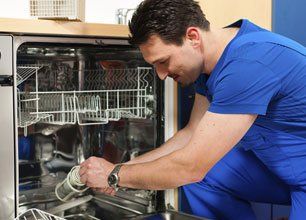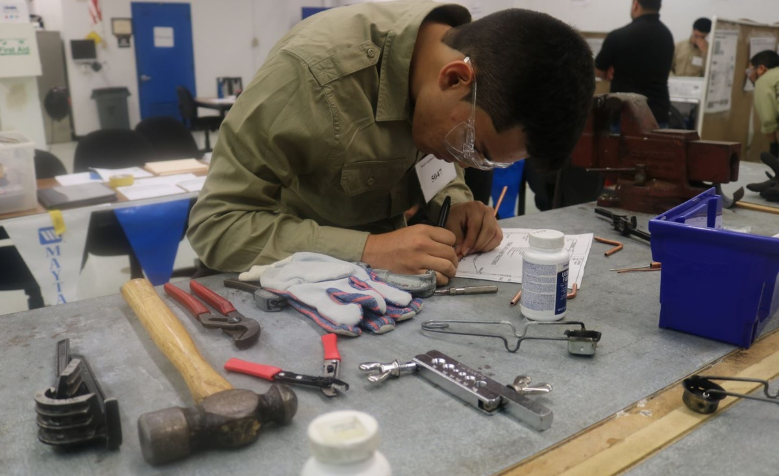Necessary Tips for Effective Ref Fixing to Extend Device Life Expectancy
When it concerns your fridge, proper repair service and maintenance are crucial for long life. You might not recognize how small problems can rise if they're left unaddressed. Regular examinations and straightforward fixes can conserve you from pricey replacements down the line. Comprehending usual problems and knowing when to act can make all the distinction. Allow's explore some vital pointers that will help you keep your refrigerator running efficiently for several years to come.
Comprehending Usual Refrigerator Problems
Fridges are crucial in maintaining your food fresh, but they can come across a series of usual problems that disrupt their performance. One frequent issue is inadequate cooling. If you discover food spoiling quicker than typical, inspect the thermostat settings or think about if the door seals are damaged. One more common issue is extreme noise, which could indicate a malfunctioning compressor or a falling short follower. You may also experience water merging inside or below the fridge; this often results from a clogged up defrost drain or a damaged water line. Additionally, if your refrigerator's light isn't working, it might be a basic bulb concern or a trouble with the door button. Lastly, ice accumulation in the freezer can prevent air movement and cooling down efficiency. Acknowledging these problems early can save you time and money in repairs, guaranteeing your fridge runs smoothly and successfully.
Regular Upkeep Practices
To keep your home appliances running smoothly, you need to remain on top of normal maintenance methods. Clean the condenser coils, inspect the door seals, and monitor the temperature level settings to ensure peak efficiency. These easy jobs can save you money and time on repairs down the line.
Clean Condenser Coils Routinely
Cleaning your condenser coils frequently can greatly improve your home appliance's effectiveness. Dust and dirt build up on these coils over time, causing your appliance to function tougher and eat even more power. To maintain them clean, disconnect your device and meticulously remove any kind of safety covers.
Inspect Door Seals
3 straightforward actions can help you guarantee your appliance's door seals are in great condition. Second, clean the seals utilizing warm, soapy water to eliminate any type of particles or gunk. By complying with these actions, you'll preserve your home appliance's effectiveness and durability, saving you money on power costs and fixings in the long run.
Display Temperature Level Settings
Frequently checking your appliance's temperature settings is necessary for finest performance and efficiency. Whether you're managing a fridge, freezer, or stove, maintaining an eye on these settings can stop numerous problems. For refrigerators, aim for temperature levels in between 35 ° F and 38 ° F; for freezers, stick around 0 ° F. If the temperature levels are also high or reduced, your home appliance may function harder, losing energy and shortening its life-span. Utilize a thermometer to check these setups consistently, particularly after major changes, like relocating your home appliance or adjusting the thermostat. If you see changes, adjust the setups appropriately and consult the customer guidebook for assistance. By remaining positive about temperature level tracking, you'll assure your home appliances run smoothly and last much longer.
Troubleshooting Air Conditioning Problems
When your fridge isn't cooling correctly, it can result in spoiled food and squandered cash, so dealing with the problem quickly is critical. Begin by checking the temperature level settings to validate they're at the advised levels, generally around 37 ° F for the fridge and 0 ° F for the freezer. If the settings are proper, check the door seals for any type of voids or damage; a defective seal can enable cozy air to get in.
Next, analyze the vents inside the refrigerator and fridge freezer. Validate they're not obstructed by food things, as this can disrupt airflow. Listen for the compressor; if it's not running or making unusual noises, it might require interest. Ultimately, examine the condenser coils, usually located at the back or bottom of the unit. Dust and debris can accumulate, causing cooling issues. Clean them with a vacuum or brush to optimize efficiency. If troubles linger, it could be time to call a specialist.
Taking Care Of Water Leak and Ice Build-Up
If you're handling water leakage or ice accumulation in your device, it's important to recognize the resource of the problem. By pinpointing where the water is originating from, you can prevent additional concerns and prevent expensive repair work. Let's explore some effective techniques to deal with these typical issues.
Recognize Leakage Sources
How can you successfully recognize the sources of water leak and ice accumulation in your appliances? Begin by evaluating the seals and gaskets on your refrigerator and freezer doors. By methodically examining these areas, you'll identify the resource of the trouble, allowing you to take the necessary steps to repair it and prolong your appliance's life-span.
Stop Ice Formation
To stop ice development in your appliances, begin by verifying the temperature level settings are suitable. If your fridge or fridge freezer is also cool, it can lead to excessive ice build-up. Examine the door seals on a regular basis; harmed seals can allow cozy air in, causing condensation and ice formation.
Keep the appliance well-ventilated and avoid overcrowding, as this can obstruct airflow - Best Appliance Repair Company In Oro Valley Dependable Refrigeration & Appliance. Routinely thaw your fridge freezer if it doesn't have an automatic defrost attribute.
If you see water leak, identify and fix any kind of obstructed drain holes, as they can add to ice build-up. Clean the coils and validate they're working properly to keep peak performance. Taking these actions will certainly assist extend your device's life expectancy and efficiency.
Addressing Noisy Fridge Sounds
While it could seem alarming, a loud refrigerator commonly indicates small problems instead of major breakdowns. First, recognize the source of the sound. Typical culprits include the compressor, fans, and water lines. If you listen to a buzzing sound, it may be the compressor striving; this might simply be a typical operation noise.
Next, inspect for loosened items inside. Often, containers or racks can rattle, creating unwanted sound. Tighten up or reposition them to eliminate the noises.
If you see a clicking noise, it may be the defrost timer. This is commonly harmless but might show it requires inspection.
Lastly, validate your fridge is degree. An unbalanced home appliance can create resonances and sound. Make use of Best Appliance Repair Near You Dependable Refrigeration & Appliance Repair Service a level to check, and change the feet if needed. Dealing with these problems without delay can aid maintain your refrigerator's performance and extend its life expectancy.
When to Replace Components vs. Complete Replacement

Nonetheless, if your home appliance is older and experiencing numerous problems, a complete replacement can be more cost-efficient. Think about the price of repair work versus the device's value. If repair services exceed 50% of a new device's price, it's normally wiser to invest in a substitute. Additionally, if you observe recurring issues that maintain recurring, it's an indication that your device has reached completion of its life. Weigh these aspects meticulously to make the very best choice for your demands and budget.
Recognizing When to Call a Specialist
Just how can you tell when it's time to call in a specialist for device fixing? If your device quits functioning entirely or often trips circuit breakers, it's another red flag.
You ought to also consider your own convenience degree with fixings. If you're unclear concerning detecting the issue or lack the right tools, it's ideal to connect for assistance. Keep in mind, attempting complicated repairs can bring about even more damage or perhaps safety and security threats.

Often Asked Questions
Just how Typically Should I Clean the Fridge Coils?
You ought to cleanse your refrigerator coils every 6 months. This helps keep efficiency and protects against overheating. If you see excessive dirt or animal hair, tidy them much more regularly to guarantee your refrigerator runs efficiently.

Can I Use Vinegar for Cleansing My Refrigerator?
Yes, you can utilize vinegar to clean your fridge! It's a superb natural cleaner that gets rid of smells and discolorations. Refrigerator repair experts Dependable Refrigeration & Appliance Repair. Just blend it with water, use it to surface areas, and clean down for a fresh, tidy fridge
What Temperature level Should My Fridge Be Set To?
You should establish your fridge to 37 ° F(3 ° C) for optimal food conservation. This temperature level maintains your food fresh while preventing putridity, ensuring your groceries last longer and decreasing waste. It's a simple change you can make!
Does a Refrigerator Need to Be Leveled?
Yes, your refrigerator needs to be leveled. If it's uneven, it can affect cooling down performance and create excess sound. Examine the progressing legs and change them to ensure appropriate balance for optimal performance.
How Can I Reduce Refrigerator Power Intake?
To minimize your fridge's energy consumption, keep it tidy and well-ventilated, examine door seals for leaks, set the temperature in between 35-38 ° F, and stay clear of overwhelming it. These steps can significantly lower your energy costs.